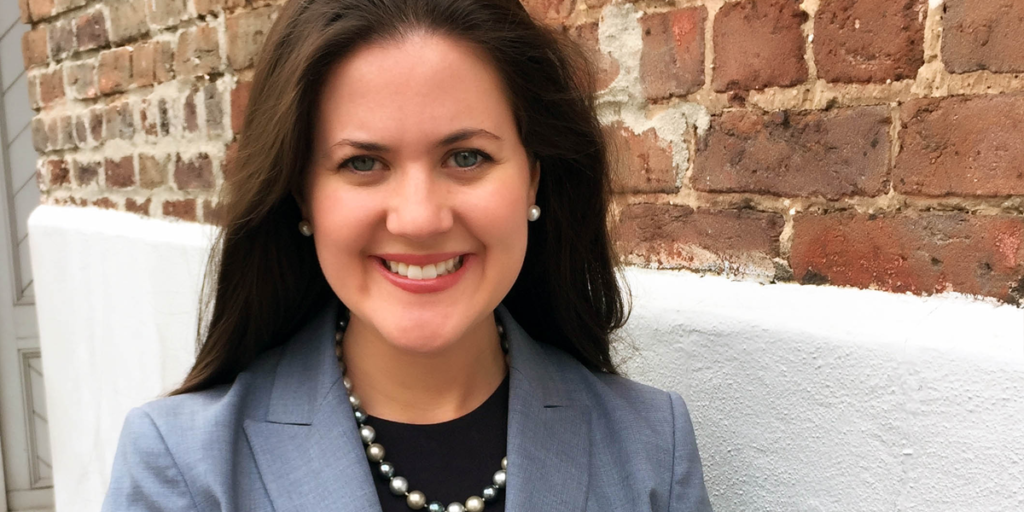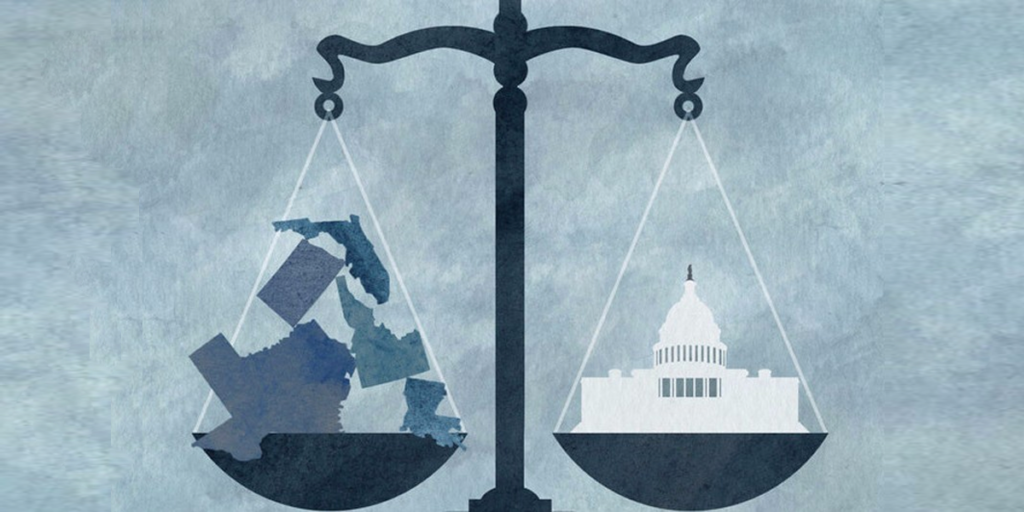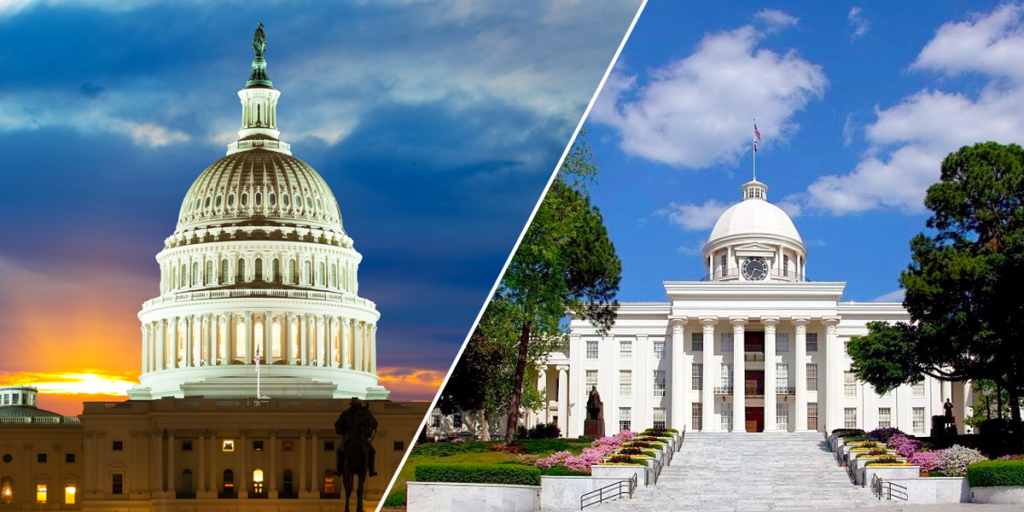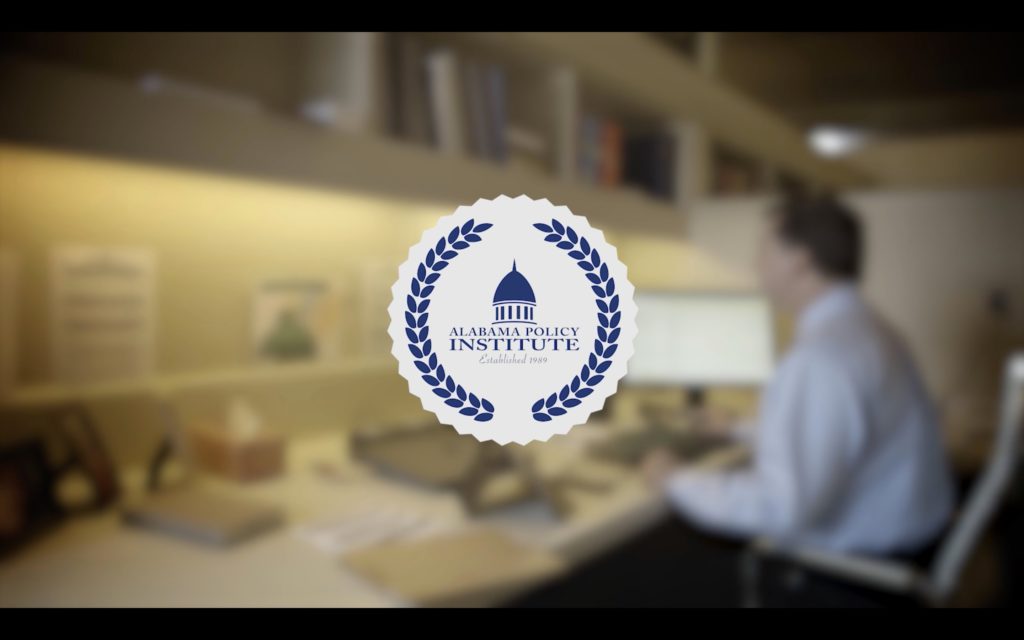Woman of Influence: Leigh Hixon, Senior Director Alabama Policy Institute

Leigh Hixon has been making waves since her college days at Auburn University. Spending a majority of her career in fields dominated by men, Hixon wasted no time in making sure her voice was heard, and her ideas executed. She grew up in Saraland, Ala. and graduated from Auburn University in 2008 with a Bachelors of Arts in Political Science and Government. When asked what influenced her to pursue a career in government and policy, Hixon responded; “When I was a student at Auburn University, I led the SGA’s Lobby Board and helped to create an organization for freshman to get involved in government and politics on campus.” “I brought legislators to campus and shuttled hundreds of students to Montgomery for higher education lobbying days over the years. Just as I believed then it was important for students to have their voices heard in Montgomery, I still believe it is important to stay actively engaged in political debate,” said Hixon. In January of 2009 Hixon went on to work as a Scheduler for a member of the Alabama delegation in the U.S. House of Representatives and stayed on the Hill until January 2012; when she shifted her career from government to the private sector. Hixon began working in Government Relations at Airbus, “Navigating an unknown industry, aerospace and defense, it was important to prove not only to myself, but to my colleagues, that I had an ability to quickly build the knowledge base and skill set to succeed,” explained Hixon. And succeed she did. By identify stakeholders and investment opportunities for Airbus, Hixon guaranteed long-term success for the organization. In 2016 she made an even greater leap — moving to New York City and working at The Nasdaq Stock Market. There she advised, managed, and built relationships between Nasdaq’s CEO and executive team and executives of Nasdaq-listed companies and prospects, and worked with Adena Friedman, the first woman to ever become CEO of a major U.S. stock exchange operator. In 2017 Hixon made the decision to return to her policy roots, and headed back home to the Yellowhammer state to take a position as the Senior Director of Policy Relations for the Alabama Policy Institute. For the past year she has worked in Birmingham, and across the state, leading a team of professionals who provide in-depth research and analysis of Alabama’s public policy issues. Hixon is a woman of high-calibre, and displays an amount of strength and ambition that many young women hope to one day obtain. She was kind enough to answer some of our questions on her work, influences, and how she gained those qualities: How have other women influenced your success? For much of my professional career, I have predominately worked in male-dominated industries: policy, aerospace, and fin-tech. I owe a great deal of gratitude to the female trailblazers and mentors who empowered, challenged, and supported me early in my career, and to countless male colleagues who embraced equality in the workplace. It is true that it’s important to surround yourself with people who believe in you and your abilities. One of my former managers on Capitol Hill, and a mentor to this day, cheered me when I told her I was leaving the office to pursue a more challenging role off the Hill. Her words still ring true to me today: always set the highest expectations for yourself and use your self-confidence to motivate and inspire others. One female trailblazer purposefully helped me identify my strengths and weaknesses. We worked through the StrengthsFinder, a performance assessment to identify my natural talents. Pinpointing those strengths, I was then able to develop a skill set which enabled me to identify stakeholders and invest in opportunities that ensured profitable, long-term growth and success for the company. I had the privilege of working with the first female CEO of a U.S. stock exchange. She would say stop with the timid voice. Assert yourself into conversations, and you will be heard. This was a tough habit to break for a girl growing up in Alabama, but I intentionally stopped always replying with a “Yes, Sir”, “Yes, Ma’am”, “No, Sir”, “No, Ma’am”, and use other pleasantries or assurances to respond in certain conversations, instead. Don’t get me wrong, I have and will always respect my elders and those with honorable distinctions. But in casual conversation, by constantly saying “Yes, Sir” “No, Sir” to my male peers, I felt as though I was putting myself at a disadvantage and lowering my ability to “compete” on an equal playing field. I prefer to use other pleasantries to convey respect, removing any attempt to deference my role or abilities in conversation. What has been your favorite area of service, and what is your favorite thing about that position? Throughout my career I have demonstrated an ability to work effectively with others. It is my goal and mission to help build up the next generation of conservative leaders in Alabama, while identifying policies that are good for our state and working with others to find opportunities for change. I enjoy working in a results-oriented and demanding environment with a group of driven people. (I’m listing out here because I can’t choose just one.) Compassion for the less fortunate and a desire to help those in need Grit for the long days, when all seems to be against you, and the will power to persevere Faith in God, my husband and family; reliability and loyalty to my friends and my career Keeping an open mind, because as they say, your brain is not going to fall out. What advice would you give to young women who want to work with policy or government relations? Coming back to Alabama after almost ten years, I have learned the unfortunate truth that progress in policy is slow. Stay motivated and focused. No matter how difficult the challenge, the right team and a good attitude can overcome any obstacle. Having a positive mindset is the first step to taking on any career path, and
Leigh Hixon: Curtail federal influence, or step aside

Part III of III in a series on Alabama’s Federal Dependency. Please visit Alabama Policy Institute’s website to view the Alabama statewide poll results. Part I, We Dare Defend Our Rights, was published on November 6, 2017, and part II, Saving Our Sovereignty, was published on November 20, 2017. ••• Lawmakers in Alabama should heed the results of a recent poll revealing a striking consensus among Republican primary voters that the time has come to curtail federal influence in state affairs. Pointedly, these voters implicate elected officials for essentially selling state sovereignty in exchange for an unsustainable crutch of federal funds. Now, voters call for representatives to reverse course—or step aside for candidates who will. Voters perceive a direct and unfavorable correlation between strings attached to conditional federal dollars and diminishing state autonomy. But skepticism about such funds also extends to the motivation of lawmakers who approve them, with a mere 37% of respondents trusting Alabama’s elected officials to consider only the state’s best interests when determining whether to accept or reject federal funding. The implications for those already holding office escalates when voters are asked more specifically about their expectations for representation on this issue. The vast majority of respondents—65%—wanted to decrease the level of influence the federal government has over Alabama’s state legislators. And if current officeholders are unwilling to change direction, voters are hungry for bolder leaders who will. In fact, 64% of respondents said they would be more likely to vote for a candidate who campaigned on reducing or rejecting some federal dollars in order to limit DC influence in Alabama. The good news for legislators is that there is overwhelming and unifying support among voters for commonsense reforms. Nearly all respondents—91%—expressed support for an annual inventory of federal funds coming into the state. Such information would be useful to lawmakers and voters alike, in order to assess the true cost and value of policies developed in Washington to dictate life in Alabama. As of now, only 33% of voters polled felt informed about the mandates the state has already accepted in exchange for funding. In addition to closely scrutinizing the agreements that already exist, 79% of respondents supported requiring the legislature to hold a recorded, up-or-down vote before accepting any additional federal funding that comes with strings attached. This small step would force legislators to seriously consider the true cost of any “free” grant and allow Alabamians some opportunity to hold accountable those who do not put first the state’s current and long-term best interests. Perhaps most telling, 91% of those polled supported the creation of a contingency plan for financial readiness in the event federal funding for the state is reduced—a scenario 79% of respondents felt important to anticipate. A desire for more autonomous lawmaking is one thing, but a demand for the ability to be self-sufficient suggests an unsettling lack of confidence among the state’s electorate. While these reform proposals represent a significant shift in philosophy and would align the state much closer to voter disposition, they do not require drastic changes. Their enactment, however, would go a long way toward appeasing a constituency with strong and well-founded concerns about the state’s costly reliance on federal funds to meet its budget needs. The voter sentiments revealed by this poll are significant, especially for political candidates and officeholders who often seem leery of questioning any opportunity to enhance state coffers. Responses overwhelmingly indicate that voters understand the expense of some “free” appropriations and expect their representatives to do the same. Above all, the survey demonstrates that voters are willing to forego perceived budget boosts in order to preserve and enhance state financial health and readiness. Those holding an elected office—and those aspiring to do so—should feel emboldened to take up the banner for state sovereignty on the fiscal front. ••• Leigh Hixon is Senior Director of Policy Relations for the Alabama Policy Institute (API). API is an independent, nonpartisan, nonprofit research and educational organization dedicated to strengthening free enterprise, defending limited government, and championing strong families. If you would like to speak with the author, please e-mail communications@alabamapolicy.org or call (205) 870-9900.
Leigh Hixon: Saving our sovereignty

Part II of III in a series on Alabama’s Federal Dependency. Please visit Alabama Policy Institute’s website to view the Alabama statewide poll results. Part I We Dare Defend Our Rights was published on November 6, 2017. ••• While it is difficult to persuade a state that relies on the federal government for 42% of its budget that it should begin to unwind some of those funds, there is arguably more for a state to gain than lose by shedding some of its dependence on the federal trough. But even if voluntarily forgoing such assistance is a bridge too far, it is becoming more and more essential for the state to assume greater financial responsibility. Alabama voters are looking at legislators to do just that. An overwhelming 79% of recently surveyed Republican primary voters considered it important for Alabama to be financially prepared for the likelihood that DC will reduce its funding to the state. Questions about Washington’s reliability are well founded, given the nation’s own financial and political health. Even the most politically disengaged must pause to fathom the $20 trillion (and rising) debt amassed by our federal government. What’s more, in an increasingly politicized environment, states have seen federal funds threatened over policy differences with sitting presidents of both parties. Whether unable or unwilling, nothing binds Washington to sustain the support on which states have become accustomed. But there are other reasons to approach conditional federal grants with caution. When a state accepts conditional funding, it necessarily relegates itself to the dictates of Washington, selling short both legislators and citizens alike; state lawmakers are unable to influence the policies imposed on their constituents and cannot be held responsible for complications in implementation. Accordingly, citizens must rely on a detached DC bureaucrat to address concerns about policy impacts on their lives and businesses. Voters resent this “Mother May I?” approach to lawmaking. Nearly three-quarters of those surveyed trusted the efficiency of state-run programs over federally run programs, while only 34% indicated any faith that federal spending in Alabama reflects our state’s values and priorities. Furthermore, the nature of grants conditioned on DC mandates invites cynicism that develops when governing policy and law is developed by a far-removed legislative body. Only 33% of voters polled felt informed about the federal policy “strings” attached to money already accepted by the state. These obstacles to accountability and transparency—hallmarks of good government—hinder voters’ ability to identify or expound on specific programs and is a pariah to the spirit of the American system, which rests on the consent of the governed. Making a bad situation worse, federal funds can lead to increased spending in already-strained state budgets, a consequence opposed by 67% of respondents surveyed. This can happen directly, such as when grants require matching funds or financing beyond the initial federal investment to maintain or enhance a program. But it can also happen indirectly, either when federal grants encourage states to undertake projects they would not otherwise choose or when state or local taxes are increased to bankroll overextended commitments. Whatever the cause, “free” money can become expensive quickly. Because spending is often the first solution offered by Washington, conditional grants sometimes involve sympathetic causes, such as disaster relief or, on a smaller scale, safety equipment for law enforcement. Such programs create short-term fanfare for politicians and temporary relief for beneficiaries, but they invite a potential crisis when the money runs dry. Once the federal government assumes responsibility for essential services, citizens and states are left dependent on the whims of Washington to meet critical needs. Of course, Washington’s willingness to meet these needs is not based on benevolence; rather, it is driven by a desire to impose a particular agenda simply by dangling an irresistible carrot. But the resources and attention required to avoid the proverbial stick detract from priorities state legislators and officials might pursue if left to their own devices. Ironically, conditional funding can even lead the state to work against the wishes of its own citizens, as was the case with Race to the Top dollars associated with Common Core. In an era of Washington overreach, Alabama must begin to challenge the mechanisms that make us beholden to the federal government if constitutional state sovereignty is what we desire. Taking a closer look at conditional federal funding—phasing out existing commitments and more critically evaluating future opportunities, while reevaluating the allocation of our own state funds—is a good place to start. ••• Leigh Hixon is Senior Director of Policy Relations for the Alabama Policy Institute (API). API is an independent, nonpartisan, nonprofit research and educational organization dedicated to strengthening free enterprise, defending limited government, and championing strong families. If you would like to speak with the author, please e-mail communications@alabamapolicy.org or call (205) 870-9900.
Personnel note: Alabama Policy Institute announces staff additions, changes

On Tuesday, the Alabama Policy Institute announced several new hires and changes in staff positions as they prepare to move into the 2018 legislative session and election season. “In order to meet this high demand, API leadership spent the last year carefully and thoughtfully seeking the best individuals with the passion to fight for Alabama to join the API team,” said a press release. Below are the staff additions, changes:

